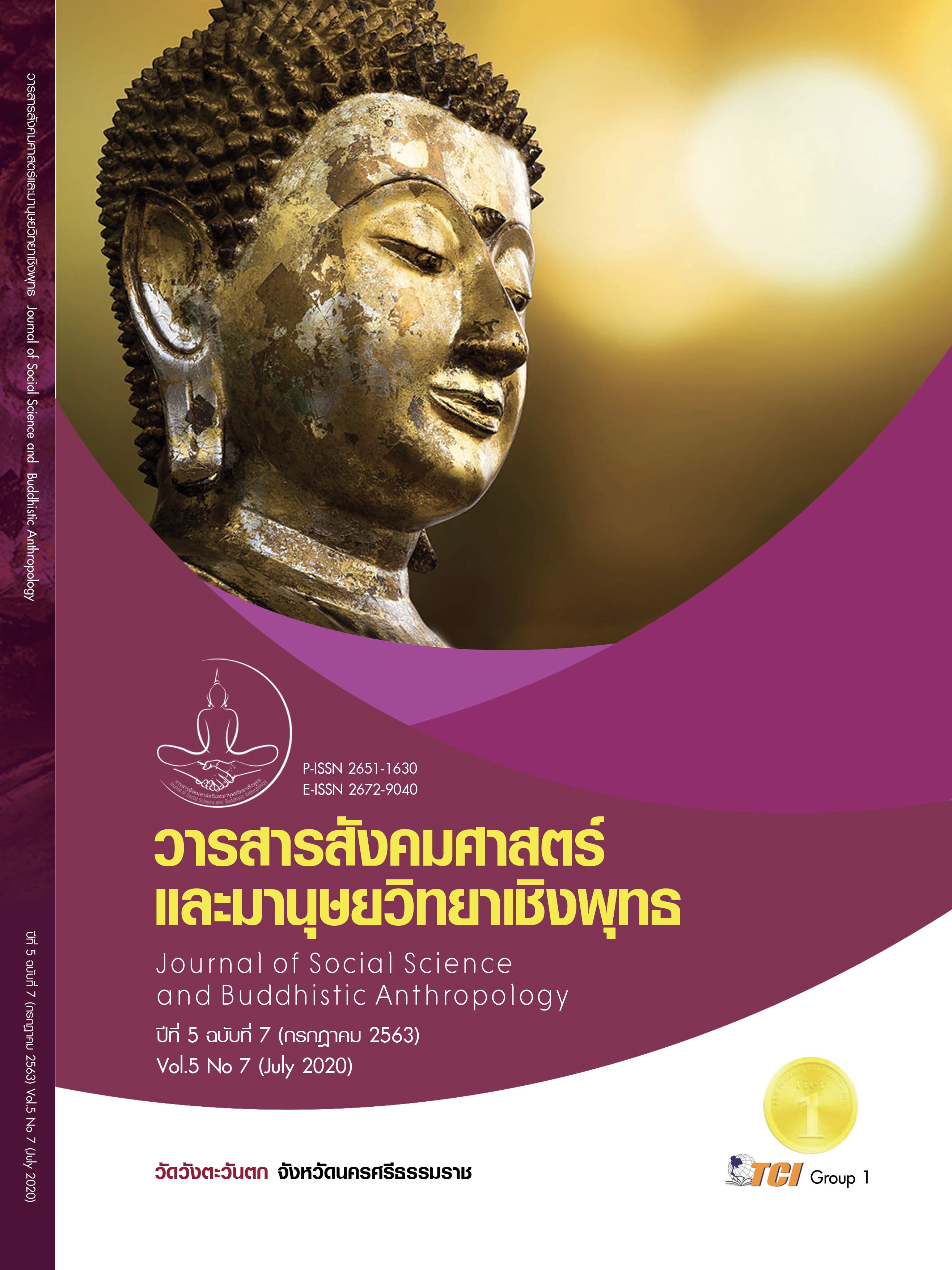DEVELOPMENT OF BUSINESS INNOVATION FOR SUSTAINABILITY: MODEL OF THAI LOGISTICS SERVICE INNOVATION DEVELOPMENT
Keywords:
Logistics Service Innovation, Logistics Industry, Innovative Leadership, Logistics Service QualityAbstract
The objectives of this research article were 1) to study the priority of factors that were important in the development of logistics service innovation 2) to analyze the principle component by Exploratory Factor Analysis (EFA) and 3) to develop the model of Thai logistic service Innovation development by Confirmatory Factor Analysis (CFA), and Structural Equation Model (SEM), as well as to check the suitability and practical possibilities. Mixed methods research to be used in this research, starting by quantitative research with 440 firms of sample and following by qualitative research with 3 persons of the expertise in logistics business in in-depth interview. The finding of this research for the first research objective found that the majority of Thai logistics firms are small enterprises (66.40%), doing business with in 5– 10 years (39.50%), to have the income lower than 100 million baht per year (46.40%), and to be land transportation business (75.00%) , the second research objective found that the majority of firms to give the importance to the variables that affecting the Thai logistics services innovation such as Innovative leadership, logistics services quality, electronics logistics and innovative competencies overview of mean are in the high level ( = 3.51- 3.93; SD = .59- .67) and the third research objective found that the model of Thai logistics service innovation development were assembled with 5 principal components such as Success in the development of logistics service innovation, Electronic logistics service, Research and development components, Innovation leadership component and Quality of logistics service. And this model fit for the appropriateness and practical possibilities, to be a tool for creating the innovation and to benefit for the business firms for increase the potential to respond to customers and maintain competitiveness.
References
กรมพัฒนาธุรกิจการค้า. (2562). ธุรกิจโลจิสติกส์ไทย...ถึงเวลาต้องปรับตัว - เปลี่ยนวิธีคิด นำเทคโนโลยีช่วยบริหารจัดการ.. เปลี่ยนคู่แข่งเป็นพันธมิตร. เรียกใช้เมื่อ 29 มกราคม 2563 จาก https://supermanlogistics.company/ธุรกิจโลจิสติกส์ไทย-ถึ/
กิตติยา วงษ์ขันธ์. (2560). รูปแบบการวิจัยเชิงนวัตกรรม (R&D, D&D, AR, R2R) โครงการฝึกอบรม “สร้างนักวิจัยรุ่นใหม่” (ลูกไก่) รุ่นที่ 5. เรียกใช้เมื่อ 20 กันยายน 2562 จาก https://www.ubu.ac.th/web/files_up/08f2017060214303228.pdf
จิตเกษม พรประพันธ์ และคณะ. (2563). ภาคบริการไทยเปลี่ยนให้ปัง ปรับให้โดน. กรุงเทพมหานคร: ฝ่ายนโยบายโครงสร้างเศรษฐกิจ ธนาคารแห่งประเทศไทย.
รัตนะ บัวสนธ์. (2556). วิธีการเชิงผสมผสานสำหรับการวิจัยและประเมิน. กรุงเทพมหานคร: สำนักพิมพ์แห่งจุฬาลงกรณ์มหาวิทยาลัย.
สำนักงานคณะกรรมการพัฒนาการเศรษฐกิจและสังคมแห่งชาติ (สศช.). (2560). เอกสารประกอบการประชุมประจำปี 2560. กรุงเทพมหานคร: สำนักงานคณะกรรมการพัฒนาการเศรษฐกิจและสังคมแห่งชาติ (สคช.) .
สุวิมล ติรกานนท์. (2550). การสร้างเครื่องมือวัดตัวแปรในการวิจัยทางสังตมศาสตร์: แนวทางสู่การปฏิบัติ. กรุงเทพมหานคร: โรงพิมพ์แห่งจุฬาลงกรณ์มหาวิทยาลัย.
Camacho, J. A. & Rodriguez, M. (2008). Patterns of innovation in the service sector:Some insights from the Spanish innovation survey. Economics of Innovation and New Technology, 17(5), 459-471.
Dess, G. G. & Pickens, J. C. (2000). Changing roles: leadership in the 21st century. Organizational Dynamics, 28(3),18-34.
Hair, J. et al. (2010). Multivariate Data Analysis. New Jersey: Prentice Hall.
Mentzer, J. T. et al. (2001). Logisics Service Quality as a Segment-Customized Process. Journal of Marketing, 65(4), 82-104.
Mescon. M.K. (1985). Management. New York: Harper & Row .
Morse. (1958). Satisfaction in the White Collar Job. Ann Arbor: University of Michigan.
Parasuraman, A. et al. (1988). SERVQUAL: a multiple-item scale for measuring consumer perceptions of service quality. Journal of Retailing, 6 (4), 2-40.
Sarros, J. C. et al. (2008). Building a Climate for Innovation Through Transformational Leadership and Organizational Culture. Journal of Leadership & Organizational Studies, 15(2), 145-158.









